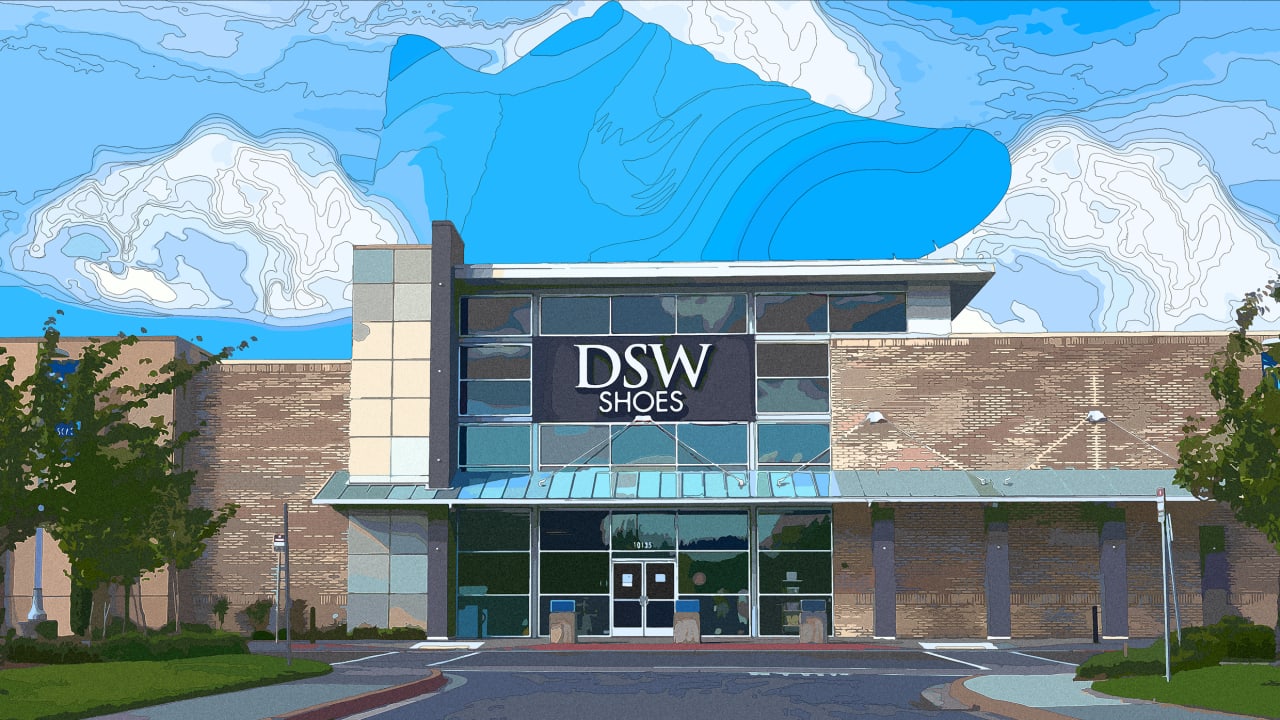Only 4.8% of creators are black. This is particularly troublesome in the footwear industry. Sneakers are one of the hottest commodities of our time, solidly built on the foundations and marketing of black culture. With the exception of Ye and his gargantuan Yeezy brand, few black creative-entrepreneurs hold a major stake in this industry.
But that may soon change, thanks to a new initiative from DSW. Starting September 15, the shoe retailer will launch its first release in a new line of shoes created by up-and-coming black designers. The products will be made in what they claim is the first black-owned shoe factory in America.
“The main reason we’re doing this is to empower African American designers and give them the opportunity to see their designs come to market,” says Bill Jordan, president of DBI, DSW’s parent company. He also notes the obvious business opportunity at stake. “I would like to have a regular [release] a predictable cadence, where we can send a message to our customers, and people line up to go buy that.
Where do these black designers come from when so few designers are black to begin with? Namely, Pensole Academy and Pensole Lewis College. Both were founded by D’Wayne Edwards, the former chief designer of the Jordan brand. He has spent the past decade leading the Academy to educate and place minority designers in the footwear industry. This year Pensole’s influence soars as he reopens Lewis College, Michigan’s only historically black college and university (HBCU), which closed in 2012, as Pensole Lewis College. It’s a free school, sponsored by top shoe brands, including shoe brands like Jordan, Nike, Adidas, and Versace, as well as retailers like StockX and Foot Locker.
DBI invests $2 million in Pensole, allowing Edwards to open its own factory in New Hampshire. There, his team will produce the factory’s first set of shoes for sale at DSW. After that, Edwards plans to source new designs from Pensole design students looking to launch their own brands. (He also sees an opportunity to partner with celebrities and other black creatives who would rather own their business than be a cog in a corporate machine.)
“We want to focus on helping these kids understand that there’s more to a shoe than a design: you have to think about the brand and the company,” says Edwards. “We are not interested in just one shoe. We are interested in people we can support to have a business in this industry. »
Building shoes in America will present its own challenges. Countries like China dominate the manufacturing sector, not only because of labor costs, but also because they have spent decades consolidating production technologies in a limited geographical area. In general crafting, if a single component of a product is not available, it cannot be crafted. China avoids these shortages by simply having more factories nearby. Edwards recognizes that as a result, it’s faster to source just about any component you need overseas than in the US. Moreover, 2 million dollars is not a big sum to open a factory. It is easy to imagine that a single specialized machine in a Nike or Adidas factory costs so much, while Pensole will design a production line with a larger budget.
However, Edwards knows this subject intimately, having spent a career designing shoes. And he admits his American-made shoes will have their own natural design constraints, which creates the possibility of unique designs not seen elsewhere.
“Our goal is not to replicate what we can do in China here in the US. It’s to leverage what we can do in the US to create a new design language for products” , explains Edwards. “How American manufacturing will come back [is] it must be very different from what it looks like in China. We will still make beautiful sneakers in leather, canvas and textile. But when you look closely at the build, it will be based on those opportunities, not the limitations, that American manufacturing has.
What Edwards hasn’t yet figured out is precisely how revenue sharing will work between the Pensole factory and the students who participate in the scheme, though he and DSW promise these founders will own the majority of their businesses. . “We’re not trying to take anyone’s intellectual property or brand,” Edwards says. “We try to help them start a business.”
It all adds up to a unique model, to say the least. You have a private company that funded a factory owned by a school for black students whose tuition is subsidized by private companies, all of whom are trying to find the next big black designers to make their products. It’s capitalism turned into scholarship funds, with real job opportunities.

